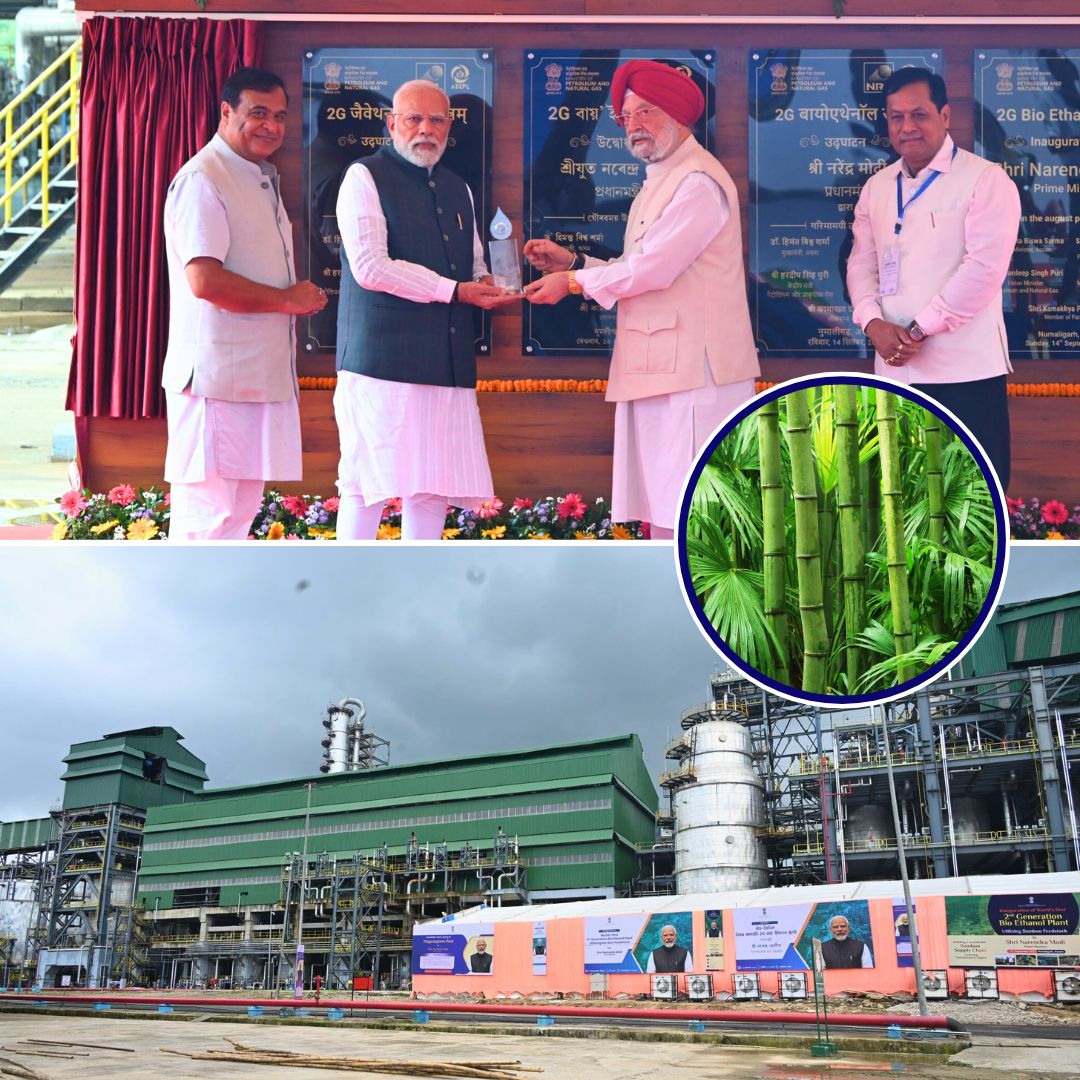Prime Minister Narendra Modi inaugurated India’s first bamboo-based ethanol plant on September 14, 2025, in Golaghat district, Assam. The ₹5,000 crore facility, developed by Assam Bio-Ethanol Private Limited (a joint venture including Numaligarh Refinery Limited and Finnish company Chempolis), utilizes indigenous bamboo varieties from the northeastern states to produce nearly 48,900 metric tonnes of ethanol annually.
Alongside ethanol, the zero-waste plant produces acetic acid, furfural, and food-grade liquid carbon dioxide, boosting Assam’s rural economy by ₹200 crore and contributing to India’s target for cleaner and self-reliant energy.
Cutting-Edge Bamboo Bioethanol Project
The Assam-based plant processes five lakh tonnes of bamboo annually, including the highly cellulose-rich balco and tulda varieties native to the northeast. Powered by advanced fractionation technology, the facility produces ethanol with over 99% purity and operates with a 25 MW captive power unit.
NRL Managing Director Bhaskar Jyoti Phukan emphasised the project’s socio-economic impact, noting that over 30,000 tribal and rural farmers benefit from bamboo cultivation and that bamboo poles now fetch Rs 65-70 each. The plant is the world’s first zero-waste bioethanol facility to exclusively use green bamboo.
Economic and Environmental Benefits
This initiative aligns with India’s Ethanol Blending Programme (E20), which aims for a 20% ethanol blend in petrol, thereby reducing carbon emissions and fossil fuel imports. Prime Minister Modi highlighted the removal of previous restrictions on bamboo harvesting as a key enabler for the project, empowering tribal farmers and expanding rural income opportunities.
The plant also produces industrially valuable byproducts such as acetic acid and furfural, further strengthening local manufacturing prospects and contributing to the Northeast’s integration into India’s green energy roadmap.
The Logical Indian’s Perspective
This milestone project showcases the harmony of technological innovation, environmental stewardship, and rural empowerment for sustainable development. It manifests India’s commitment to energy self-reliance while uplifting tribal and farming communities through inclusive growth.
Such endeavours highlight how green energy transitions can create ecological and socio-economic dividends, fostering harmony between nature and society.










